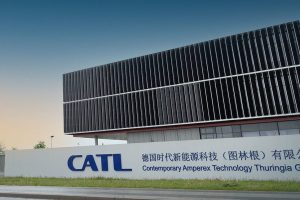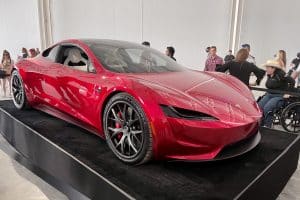- 🔍 Tesla held a “Safety Research Day” with government, academic, and NGO leaders to focus on vehicle safety advancements.
- 🚗 Tesla’s vehicle lineup is lauded for safety, with models like Model S, X, 3, and Y earning perfect safety ratings globally.
- 📉 Despite safety accolades, prevalent misconceptions about Teslas persist, including concerns about fires and durability.
- 🤖 Tesla addresses critical narratives surrounding Autopilot and Full Self-Driving (FSD) technologies through proactive safety initiatives.
- 📈 Tesla shares safety research and advancements with regulatory bodies and stakeholders to maximize public benefit and enhance vehicle safety standards.
In the fast-paced world of automotive innovation, safety remains a top priority for manufacturers like Tesla. Recently, the electric car giant hosted a groundbreaking event titled “Safety Research Day,” bringing together key stakeholders to delve into the intricacies of vehicle safety advancements. Let’s explore the key takeaways and implications of this significant initiative.
Recognizing Tesla’s Safety Legacy
Tesla has earned widespread acclaim for its unwavering commitment to safety across its vehicle lineup. Models such as the Model S, X, 3, and Y have consistently received top safety ratings from regulatory agencies worldwide, underscoring the company’s dedication to protecting its drivers and passengers. From advanced crash avoidance systems to robust structural integrity, Tesla vehicles embody the pinnacle of automotive safety engineering.
Addressing Persistent Misconceptions
Despite its safety accolades, Tesla continues to grapple with persistent misconceptions that cloud public perception. One such myth revolves around concerns regarding the susceptibility of Tesla vehicles to fires and their durability in adverse conditions. While these narratives often stem from isolated incidents or misinformation, they underscore the importance of proactive communication and transparency from Tesla to dispel falsehoods and build trust with consumers.
Confronting Challenges in Autonomy
As Tesla pushes the boundaries of autonomous driving technology with features like Autopilot and Full Self-Driving (FSD), it faces heightened scrutiny and skepticism from critics and regulators alike. Safety concerns surrounding the deployment of autonomous systems on public roads have sparked debates and regulatory scrutiny. However, Tesla remains steadfast in its commitment to addressing these challenges through rigorous testing, data-driven analysis, and collaboration with industry stakeholders.
The Significance of “Safety Research Day”
Against this backdrop, “Safety Research Day” emerges as a pivotal moment for Tesla and the broader automotive community. By convening government officials, academic researchers, and non-governmental organizations (NGOs), Tesla demonstrates its commitment to transparency, collaboration, and continuous improvement in vehicle safety. The event serves as a platform for sharing insights, exchanging best practices, and fostering meaningful dialogue to enhance safety standards industry-wide.
Looking Towards the Future
As Tesla continues to innovate and evolve, its dedication to vehicle safety remains unwavering. By leveraging cutting-edge technology, data analytics, and stakeholder engagement, Tesla aims to not only meet but exceed the highest safety standards. Through initiatives like “Safety Research Day,” Tesla reinforces its position as a leader in automotive safety and sets a precedent for the industry to follow.
In conclusion, “Safety Research Day” underscores Tesla’s ongoing commitment to prioritizing safety in every aspect of its operations. By fostering collaboration, transparency, and innovation, Tesla is paving the way towards a safer, more sustainable future for transportation.





